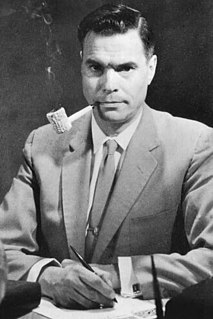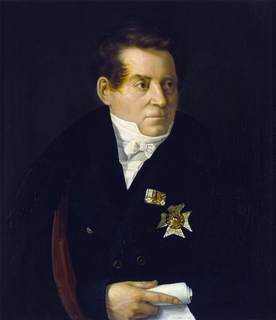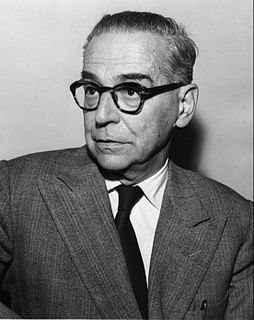A Quote by Gilles Deleuze
To affirm is not to bear, carry, or harness oneself to that which exists, but on the contrary to unburden, unharness, and set free that which lives.
Related Quotes
Every acceptance of suffering is an acceptance of that which exists. The denial of every form of suffering can result in a flight from reality in which contact with reality becomes ever thinner, ever more fragmentary. It is impossible to remove oneself totally from suffering, unless one removes oneself from life itself, no longer enters into relationships, makes oneself invulnerable.
The courage to be as oneself within the atmosphere of Enlightenment is the courage to affirm oneself as a bridge from a lower to a higher state of rationality. It is obvious that this kind of courage to be must become conformist the moment its revolutionary attack on that which contradicts reason has ceased, namely in the victorious bourgeoisie.
Conclusions which are merely verbal cannot bear fruit, only those do which are based on demonstrated fact. For affirmation and talk are deceptive and treacherous. Wherefore one must hold fast to facts in generalizations also, and occupy oneself with facts persistently, if one is to acquire that ready and infallible habit which we call "the art of medicine".
The truest definition of evil is that which represents it as something contrary to nature; evil is evil because it is unnatural; a vine which should bear olive-berries, an eye to which blue seems yellow, would be diseased; an unnatural mother, an unnatural son, an unnatural act, are the strongest terms of condemnation.
What is freedom? It consists in two things: to know each his own limitations and accept them - that is the same thing as to know oneself, and accept oneself as one is, without fear, or envy, or distaste; and to recognise and accept the conditions under which one lives, also without fear or envy, or distaste. When you do this, you shall be free.
I compare the troubles which we have to undergo in the course of the year to a great bundle of sticks, far too large for us to lift. But God does not require us to carry the whole at once. He mercifully unties the bundle, and gives us first one stick, which we are to carry today, and then another, which we are to carry tomorrow, and so on. This we might easily manage, if we would only take the burden appointed for us each day; but we choose to increase our troubles by carrying yesterday's stick over again today, and adding tomorrow's burden to our load, before we are required to bear it.
[E]very act of a delegated authority, contrary to the tenor of the commission under which it is exercised, is void. No legislative act, therefore, contrary to the Constitution, can be valid. To deny this, would be to affirm, that the deputy is greater than his principal; that the servant is above his master; that the representatives of the people are superior to the people themselves; that men acting by virtue of powers, may do not only what their powers do not authorize, but what they forbid.
We must have a government which is not only a guarantor of public order and safety and which preserves the right of White citizens to keep and to bear arms, which is the ancient hallmark of a truly free people, but we must have government which maintains an eternal vigilance against the enemies, both internal and external, of a White America.
Why did the consensus of Christian churches not only accept these astonishing views but establish them as the only true form of Christian doctrine? . . . these religious debates - questions of the nature of God, or of Christ - simultaneously bear social and political implications that are crucial to the development of Christianity as an institutional religion. In simplest terms, ideas which bear implications contrary to that development come to be labeled as 'heresy'; ideas which implicitly support it become 'orthodox.'

































